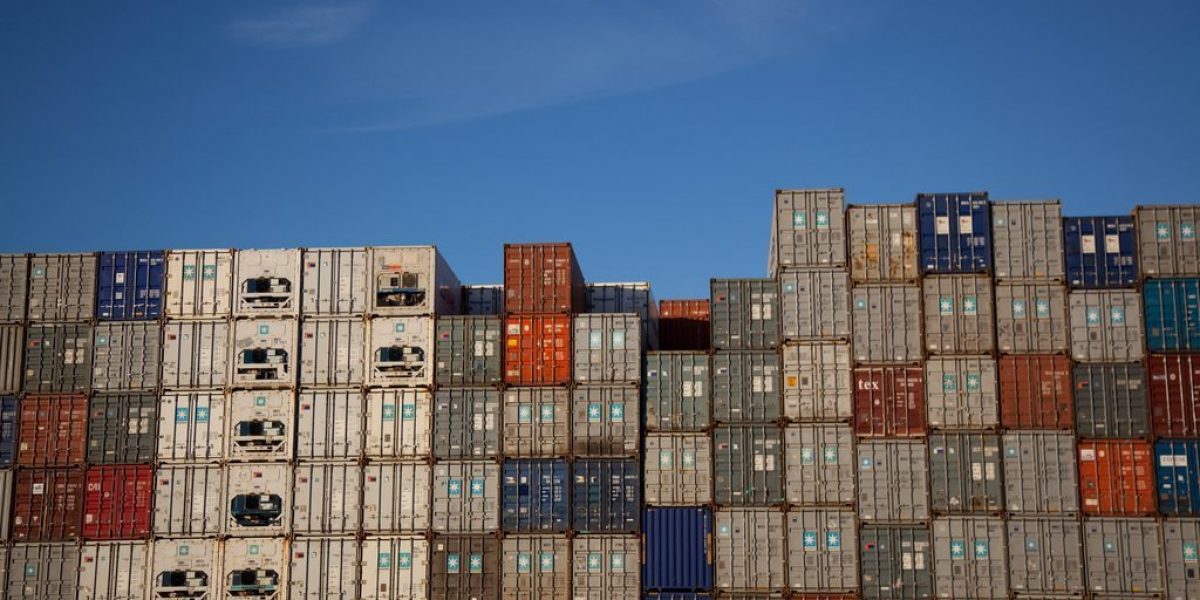Called “Economic Partnership Agreements” (EPAs), these are ordered in a series of regional processes with the EU playing “hub” to six ACP regional “spokes”, four of which are in Africa.
WTO rules prevent market access dis-crimination in favour of countries grouped on the basis of historical relationships. Therefore EPAs are projected to replace the ACP groups’ historical reliance on EU trade preferences, through establishing reciprocal trade arrangements. Meeting in Doha in 2001 WTO members granted the EU a grace-period or “waiver” from the rules, to phase-in WTO compatible arrangements. By contrast, the EU’s “Everything but Arms” preference arrangement for least-developed countries (LDCs) — which will feature prominently in EPA outcomes — is permitted as it discriminates on the basis of an accepted development category.
The waiver expires at the end of this year. So by January 2008 EPAs must be in place or the current preferential access regime, known as the Cotonou Partnership Agreement, will be vulnerable to challenge. This is of great consequence for Africa, reliant as it is on exports of various commodities to the EU under the Cotonou agreement.
So what is on the agenda? Just about everything comprising a modern reciprocal trade negotiation: trade in goods (agricultural and industrial); services; intellectual property rights; customs regimes; government procure-ment; investment regulations and protections; and competition policy. This agenda’s breadth is one of the most significant sources of tension. The other source is the future of the EU’s development assistance package for the ACP, and the extent to which it will be linked with EPA outcomes.
Many African policy-makers, business representatives, and western development-focused NGOs argue that the EPA agenda is too broad and intrusive for African countries. Some go further in arguing that the trade liberalization implicit in it would be harmful to African development. I am in favour of a broad and liberalising agenda under certain conditions, elaborated below.
The economics at play point convincingly to the need for it. These consist of well-known African development challenges on which there is a consensus in development circles. Broadly, these can be categorised into two agendas: supply-side constraints, and trade constraints.
The former consists of a host of infrastructure needs: physical, institutional, financial, and technological. Solving them will take time, direct investment (especially foreign), appropriate regulations and imple-mentation thereof, and money. The same logic applies to the litany of constraints traders encounter in doing business on, with, or from the continent. The two agendas are intimately connected and need to be tackled comprehensively. The EU could be playing a stronger role in addressing this agenda through greater direct investment; and more focused and responsive development assistance.
This needs to be matched by import liberalisation on the African side as Europe produces a host of productivity-enhancing goods required by African producers and consumers on which it makes no economic sense to impose duties. Owing to many African states’ dependence on import tariffs for state revenues a tariff liberalisation package has to be carefully designed; but this caveat does not undermine the broader economic case. Besides, the majority of African states are LDCs and hence not obliged to offer reciprocal access to their markets owing to the fact that they already qualify for duty-free, quota-free access to the EU market under the EBA scheme.
Beyond historical relationships and the “feel good” factor what is required to convince European investors and governments to in-crease their African footprint? Specifically, can a business case be made for significantly increased European FDI into the continent, beyond resource extraction? In my view it hinges on significant regulatory upgrading and economic liberalisation in African states. Therefore in my view the broad EPA agenda is appropriately framed.
Yet the details, especially regarding the many regulatory issues within the broad agenda, are important. Unfortunately space constraints prevent a thorough treatment of this issue. In general, though, I think that the regulatory agenda should not intrude unduly into African states’ policy space. But what might “unduly” mean in different contexts?
Furthermore, the economics and content issues must be related to the capacity of African states both to negotiate EPAs but more importantly to implement negotiated outcomes. This should determine the overall scope of negotiations and commitments, and the manner in which they are sequenced. Unfortunately, the continent suffers from a generalised political and technical crisis of the state. Therefore, the overarching goal for African negotiators should be to establish a realistic (implementable), and modernising regulatory agenda that extends and locks in regulatory reforms, backed up by requisite resources or an “aid for trade” agenda.
And therein lies the rub(ber): the EU insists on a Lexus in the face of widespread African opposition, whilst resisting the aid for trade agenda. Aggravating this is a pervasive and apparently self-serving discourse within which EC negotiators propound on what African countries need (which may well be correct) and how the EU is best placed to deliver such. This does not go down well in Africa where colonial memories bubble close to the surface. Compounding this negative negotiating dynamic is the fact that the EU holds almost all the cards: market power(access to the common market); financial power (develop-ment assistance); and negotiating muscle.
Whether consciously or not, the EU is underminingthe spirit of EPA negotiations.
In South Africa we learned the hard way that the underlying spirit infusing negotiations is vitally important for the overall health of the endeavour. It is the fuel that determines whether the vehicle will reach its destination, stall, or combust. And as the EU knows too well, neither of the latter two is in Africa’s interests.
So it is scarcely surprising that Africa is embracing China with such enthusiasm. The Chinese state does not lecture African leaders on their development priorities. It does not lecture them (nor could it) on democracy and good governance (and unfortunately may promote the reverse). It provides pots of money freely and quickly, albeit opaquely. And its state-owned companies have netted a treasure trove of African resources as they venture where Europeans fear to tread. Last year’s China-Africa summit in Beijing, in which African leaders literally queued up to greet Chinese President Hu Jintao in a nauseating display of fealty, rammed the message home to Europe’s political elite.
So at the end of this year, notwithstanding Mr Mugabe’s likely baleful presence, Europe will host African leaders in the first Euro-Africa summit in several years. Clearly Europe’s diplomatic leader-ship has recognized the threat China poses to their long-established dominance of African commodity supplies. If they wish to match this on the trade and aid fronts, they would be well-advised to pay closer attention to the EPA negotiations.
In particular, the EU should listen to African negotiators and agree to properly sequence the broad agenda to African capacities. That means concluding the core goods market access deal first. Then the complex regulatory agenda should be tackled piecemeal in tandem with a targeted resource package, in order to enable fragile societies and stretched negotiators to properly digest its contents before making commitments.
That would be a truly developmental agenda.






